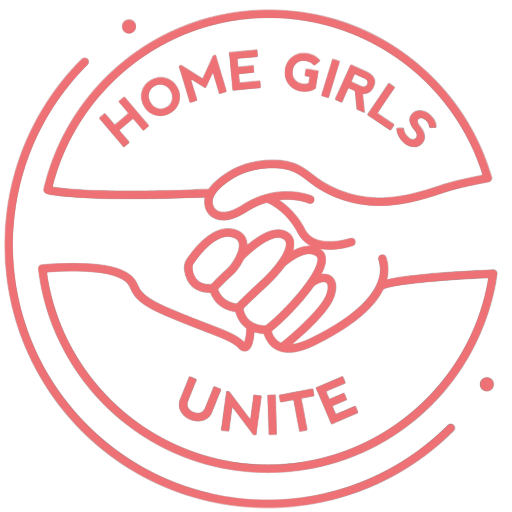Why eldest daughters?
According to the International Organization for Migration (IMO), when it comes to human trafficking for sexual exploitation, “most of the Nigerian victims are eldest daughters or next eldest daughters in their families (like eastern European victims) typically not only support themselves but also have economic responsibilities for their near relatives” (IMO, 2003).
Home Girls Unite supports eldest, immigrant and parentified daughters’ transition from merely surviving to thriving by equipping them with practical tools. Our focus is particularly on daughters from immigrant, working-class, and racialised backgrounds. We aim to empower them to set boundaries, communicate their needs confidently, and harness their leadership skills. This includes teaching self-care, advocacy, time management, and providing emotional support and resources that allow them to balance family duties with their aspirations. We aim to help them relieve the burdens of parentification, also known as ‘role reversal’ or ‘adultification’, gendered parenting, and abuse rooted in culture.
Eldest daughters often serve as providers, unpaid caregivers, cultural mediators, and emotional labourers in their families; These roles are frequently shaped by patriarchy, race, culture, class, and being a child of immigrants, which are not often recognised as forms of gendered labour. HGU disrupts these dynamics.
With community building, accessible educational resources, and peer support, we create spaces where eldest daughters can explore their identities, process trauma, and imagine a life defined on their terms. We have created a third space, both online and offline, where eldest daughters can relate, connect, and be part of a collective, thus reducing the loneliness that often comes with the role.
Ultimately, we want them to harness the strengths of being the eldest daughter while mitigating the potential negative impacts. We believe this change is possible through intentional, long-term feminist organising that centre on healing, community, and power redistribution in both the private and public sphere.

